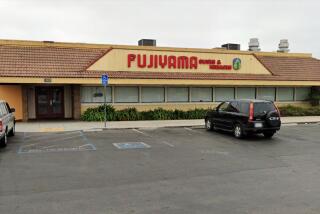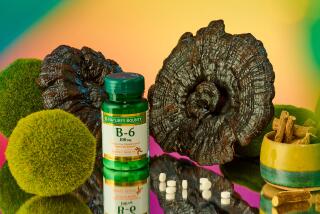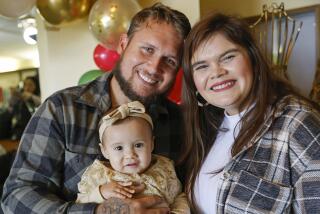Pediatricians should talk to kids about energy drinks and alcohol
- Share via
Doctors need to talk to their adolescent patients about energy drinks -- especially energy drinks that are mixed with alcohol -- to make sure they understand the risks from consuming them, the American Academy of Pediatrics says.
“When mixed with alcohol, energy drinks present serious potential for harm and abuse,” the academy says in a report published Friday in its journal, Pediatrics in Review.
For instance, the report sites a 2010 incident in which nine college students were hospitalized in Washington state after they drank a caffeinated alcoholic drink. In New Jersey, 23 students were hospitalized, after they reportedly drank the same beverage, the academy says.
“Banning caffeinated alcoholic drinks would be an important first step, but it may do little to curb the practice of mixing energy drinks and alcohol, a fixture of the college (and mostly likely high school) party scene,” the report says.
A recent survey of 10 North Carolina universities showed that a quarter of the students had consumed energy drinks mixed with alcohol in the previous month.
“Adolescents who combine energy drinks with alcohol perceive less of an effect from alcohol, the report says, even though their motor skills and visual reactions were still impaired. “Thus, there is the grave danger that adolescents may feel unimpaired, when they are just as impaired as a person with the same blood alcohol level, and subsequently may drink much more than they intended to and attempt to drive themselves and others home,” the report says.
Introduced in the late 1980s, energy drinks are now marketed to adolescents, and while only some contain alcohol, young people often add alcohol to others. The energy drink market, the report says, amounts to more than $5 billion a year, with more than 200 new brands introduced in 2006 alone.
Energy drinks generally contain guarana (a plant that contains caffeine), taurine (an amino acid), ginseng, sugar and B vitamins, the report says. The caffeine in a 16-ounce bottle of the leading brands of the drinks ranges from 154 to 280 milligrams of caffeine – the equivalent of two to three cups of coffee, the pediatric group says.
The American Beverage Assn. disagreed: “Most mainstream energy drinks contain only about half the amount of caffeine of a similar size cup of coffeehouse coffee.”
The trade group also said it encourages companies to adopt an effort that asks them to voluntarily display caffeine amounts on their packages along with an advisory statement that “the product is not intended or recommended for children, pregnant or nursing women and persons sensitive to caffeine.“
@mmacvean on Twitter







